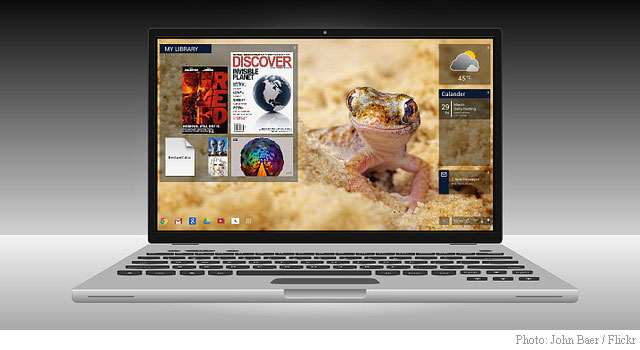
A recent Gartner study estimates that Chromebook sales will reach 5.2 million units in 2014, a 79% increase from 2013. This number will rise to 14.4 million units in 2017, nearly triple the 2014 estimate, as strong demand for low-cost mobile computing devices in sectors such as banking, finance, and education will continue to grow. Furthermore, with most programs running in the cloud, there is little need for expensive local storage capacity, making these low cost Google OS-integrated line of laptops even more appealing for price-sensitive customers.
“By adopting Chromebooks and cloud computing, businesses can benefit; they can shift their focus from managing devices to managing something much more important – their data,” said Isabelle Durand, principal report author and analyst at Gartner. “Now that the PC market is no longer growing strongly, vendors are searching for new business opportunities. They launched Chromebooks to revive interest in sub-$300 portable PCs once the netbook bubble had burst.”
Durand admits however, that while Chromebook will remain a niche market during the next five years, to reach a wider audience vendors need to offer faster connectivity features such as faster memory access, faster and larger solid-state drives, and strong user support to address cloud-based usage patterns.
“Making a competitive Chromebook is not just a matter of hardware and price; what is most important is to show how the device’s cloud-based architecture provides genuine advantages to users,” she said.
The report shows that Samsung, one of the first companies to invest in Chromebooks, currently has a 64.9% market share. The South Korean electronics giant sold 1.7 million units in 2013. Acer is in second place with 31.4%, followed by Hewlett-Packard (HPQ) with 6.8%.
- Bulenox: Get 45% to 91% OFF ... Use Discount Code: UNO
- Risk Our Money Not Yours | Get 50% to 90% OFF ... Use Discount Code: MMBVBKSM
Disclaimer: This page contains affiliate links. If you choose to make a purchase after clicking a link, we may receive a commission at no additional cost to you. Thank you for your support!



Leave a Reply